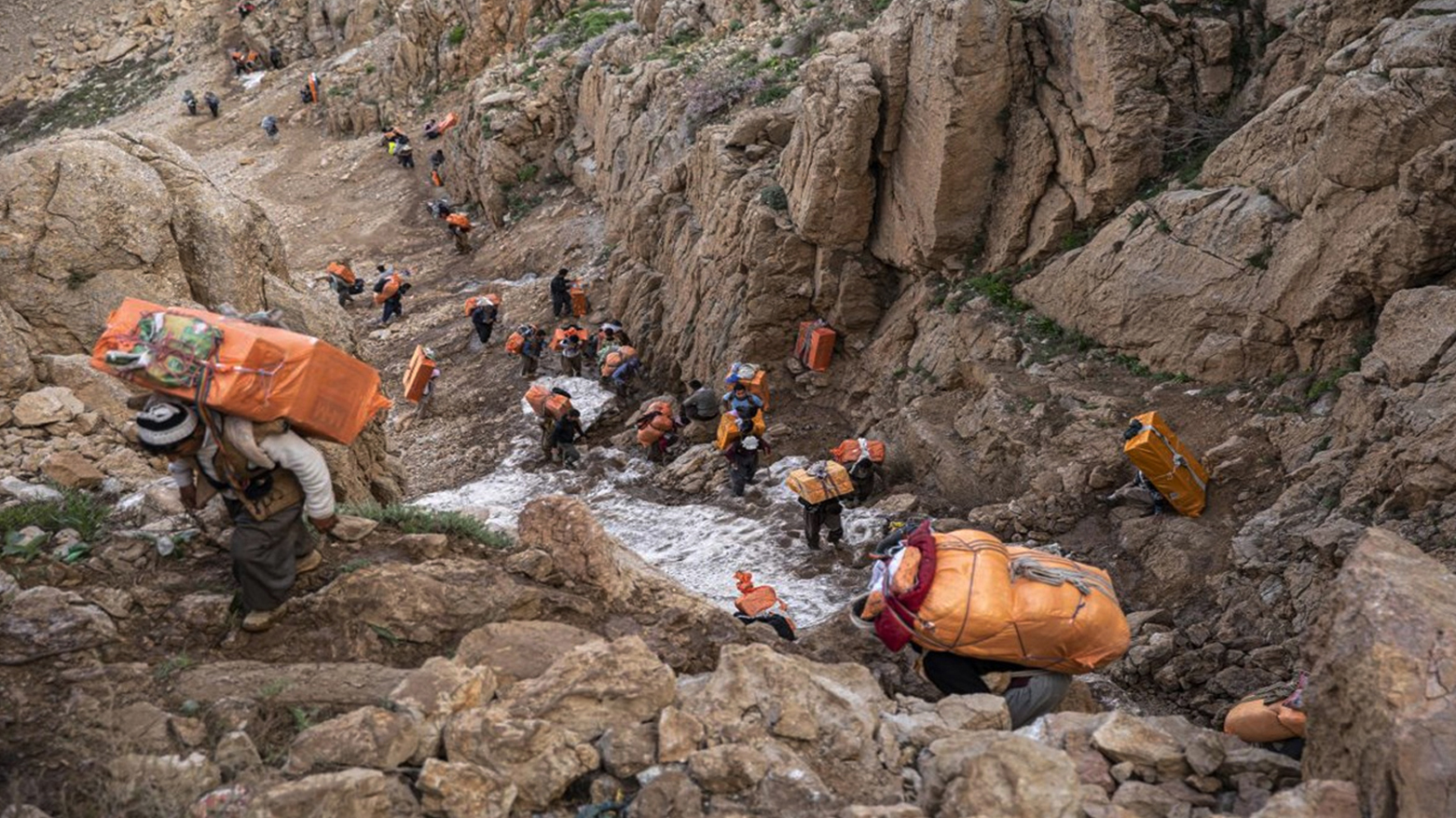Iranian authorities use excessive force against Kurdish Kolbers: Human Rights Watch report
These couriers, driven by high rates of unemployment and poverty, face dangerous working conditions and have limited access to justice for the violations they endure.

ERBIL (Kurdistan24) – Iranian authorities have used excessive and lethal force against predominantly Kurdish border couriers, known as Kolbers, who transport goods between Iran and Iraq over rugged terrain, Human Rights Watch said today.
These couriers, driven by high rates of unemployment and poverty, face dangerous working conditions and have limited access to justice for the violations they endure.
Iranian authorities have long repressed Kurdish communities, with many people turning to the physically demanding and perilous work of border couriers out of necessity.
United for Iran, a human rights group, reported that these couriers are mostly men and boys aged 13 to 65, with some women also participating.
Between October 2021 and April 2024, Human Rights Watch interviewed 13 Kurdish border couriers or their relatives who witnessed or survived excessive force by Iranian security forces.
The incidents occurred along the Iran-Iraq border in Kermanshah and West Azerbaijan provinces.
Witnesses reported that Iranian forces, including the FARAJA Border Guard and the Islamic Revolutionary Guard Corps (IRGC), targeted couriers with lethal force, resulting in injuries and fatalities.
The report documented numerous instances of violence, including shootings, beatings, and landmine explosions.
Iranian authorities claim their use of force aims to stop smuggling, yet they have expressed a desire to regulate courier activities more broadly. However, ongoing repression and economic marginalization of Kurdish communities persist.
Human Rights Watch called on Iranian authorities to develop sustainable economic opportunities in border regions to reduce the dependency on dangerous courier work and ensure the protection and due process rights of border couriers.
The UN and other international bodies should monitor and report on the treatment of these couriers to hold Iranian authorities accountable for their actions.